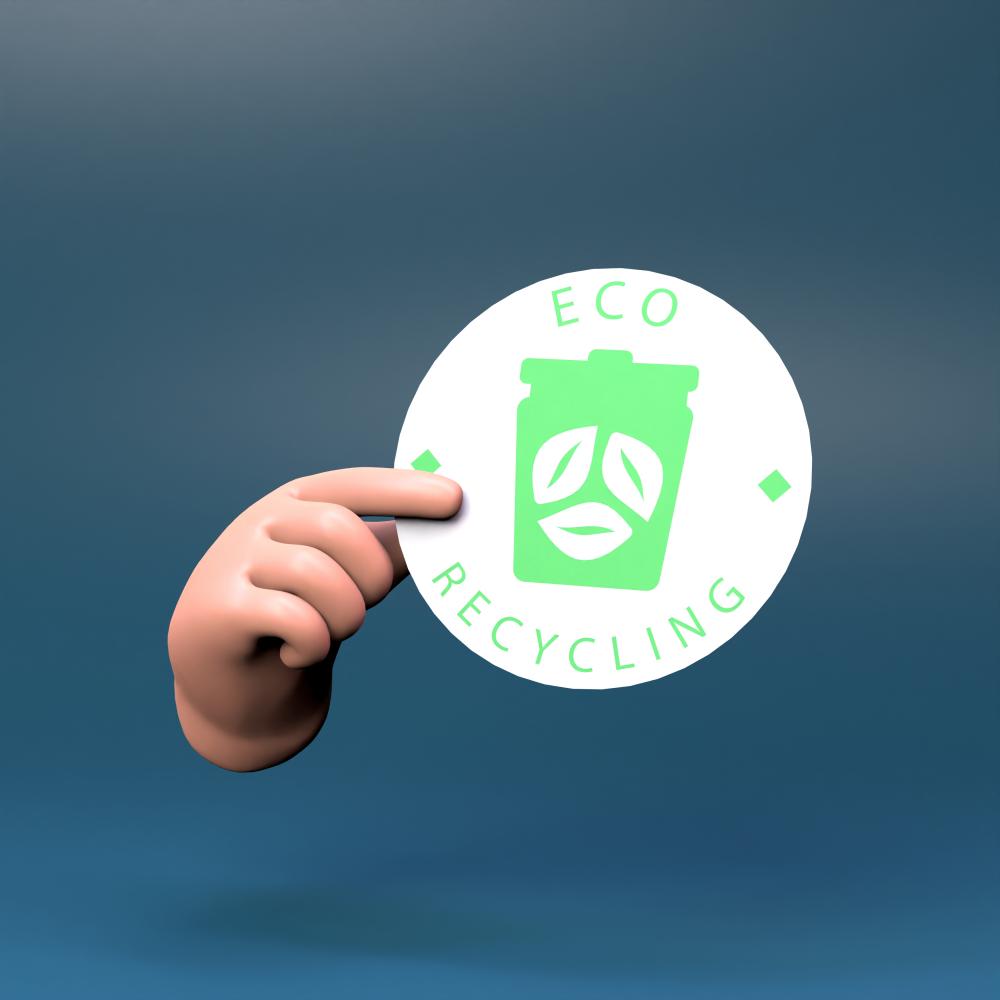Asset Disposition

Understanding Asset Disposition
In a world where technology rapidly becomes obsolete, the significance of asset disposition cannot be overstated. At Excess Logic, we specialize in transforming this challenge into an opportunity for businesses. Our journey into the realm of asset disposition began with a simple yet profound realization: every piece of technology, no matter how outdated, possesses inherent value. It's not just about discarding old equipment; it's a strategic process aimed at maximizing recovery value while ensuring environmental sustainability.
Our approach goes beyond mere disposal. We view asset disposition as a comprehensive process involving the safe, secure, and efficient removal, recycling, and repurposing of surplus electronic assets. This article aims to shed light on the multifaceted nature of asset disposition and the pivotal role it plays in today's technology-driven landscape.
Why It Matters
Asset disposition isn't merely a logistical challenge; it's a necessity in our digital age. The rapid turnover of IT hardware and electronics has profound implications not just for data security, but for the environment as well. Without proper asset disposition strategies, companies risk data breaches and contribute to the escalating problem of electronic waste.
At Excess Logic, our mission is to address these issues head-on. We've witnessed firsthand the transformations our clients achieve by integrating responsible asset disposition practices. From enhancing data security to supporting sustainability goals, the benefits are tangible and far-reaching.
The Role of Data Security
In the process of asset disposition, safeguarding sensitive data is paramount. The potential cost of a data breach--both financial and reputational--cannot be understated. Our protocols for data destruction and sanitization are rigorous, ensuring client information is irretrievably erased before any equipment is repurposed or recycled.
Over the years, our dedication to data security has not only protected our clients but also earned their trust. It's a cornerstone of what we do, proving that effective asset disposition is as much about protecting the past as it is about paving the way for the future.
Embracing the Circular Economy
The concept of the circular economy is integral to our asset disposition services. By extending the lifecycle of IT assets through resale, refurbishment, or recycling, we're able to conserve resources and minimize environmental impact. This approach challenges the traditional 'take-make-dispose' model, advocating for a more sustainable and economically efficient system.
Our commitment to the circular economy has not only helped our clients achieve their sustainability goals but has also provided financial returns. The resale of refurbished items, for instance, offers a second life to old technology, creating value from what would otherwise be considered waste.
Choosing the Right Partner
Selecting a partner for asset disposition is a decision that goes beyond mere logistics. It's about finding a provider that aligns with your business values, understands your specific needs, and has the expertise to handle your assets responsibly.
At Excess Logic, we pride ourselves on being more than just a service provider. We're a partner invested in our clients' success. Our nationwide presence and comprehensive suite of services, from data destruction to recycling and refurbishment, make us uniquely positioned to cater to a diverse range of asset disposition needs.
Our transparent process and detailed reporting keep clients informed every step of the way, providing peace of mind and tangible results. It's this dedication to excellence and commitment to sustainability that sets us apart in the asset disposition industry.
The Evolution of Asset Disposition
The field of asset disposition is constantly evolving, driven by technological advances and changing regulatory landscapes. Staying ahead of these shifts is crucial. At Excess Logic, we're committed to innovation, continuously refining our processes to offer best-in-class services.
From leveraging cutting-edge data destruction techniques to exploring new avenues for recycling and repurposing, we're dedicated to pushing the boundaries of what's possible in asset disposition. Our efforts not only benefit our clients but also contribute to the broader goal of a more sustainable and secure technological ecosystem.
Client Stories
Our work with over 500 companies, both large and small, has yielded countless success stories. One such story involves a major financial institution facing the daunting task of decommissioning multiple data centers. Through our comprehensive asset disposition services, we were able to secure and sanitize their equipment, repurpose viable assets, and recycle the rest, all while ensuring compliance with stringent regulatory standards.
The feedback from this client highlights the value of our approach: efficiency, security, and sustainability. It's stories like these that fuel our passion for asset disposition, reminding us of the impact our work has on businesses and the environment alike.
Looking Forward
As we look to the future, the importance of asset disposition will only grow. The challenge of managing obsolete technology in an environmentally responsible and data-secure manner remains paramount. At Excess Logic, we're not just responding to these challenges; we're anticipating them, ready to guide our clients through the complexities of asset disposition with expertise and integrity.
Our journey is one of continuous improvement, driven by a commitment to excellence and a passion for sustainability. By embracing innovation and focusing on our clients' needs, we aim to remain at the forefront of the asset disposition industry, setting the standard for others to follow.
For businesses seeking a trusted partner for managing surplus equipment, IT assets, and e-waste, Excess Logic stands ready to deliver. Contact us today, and let's explore how we can turn your asset disposition challenges into opportunities.

What does disposition asset mean?
When we talk about asset disposition, we're referring to the process of disposing of surplus, obsolete, or unwanted assets in a manner that maximizes their value recovery while minimizing environmental impact. It's an essential service for companies looking to responsibly manage the lifecycle of their technology and equipment. Imagine you're updating your company's laptops. Instead of tossing the old ones into a landfill, asset disposition finds them a new home or recycles them responsibly, ensuring data security and environmental compliance along the way.
What does IT asset disposition mean?
IT asset disposition, or ITAD, is a specialized part of the broader asset disposition field focused on the secure and environmentally friendly disposal of obsolete or unwanted IT equipment. This includes computers, servers, and mobile devices, to name a few. What sets ITAD apart is the critical emphasis on data security. Before repurposing or recycling, we must ensure all sensitive data is irreversibly destroyed to protect your company's and your clients' privacy. It combines technical expertise with a commitment to sustainability, aiming to extend the life of IT assets or ensure their materials are reused, thus diverting them from landfills.
What is a property disposition?
Property disposition might sound like it only pertains to real estate, but it actually encompasses a broad range of assets, including physical properties like buildings and land, as well as personal properties such as office furniture and vehicles. The goal is the same: to find the most beneficial and responsible way to divest these assets. This could mean selling a piece of land that's no longer needed, or it could involve donating old office furniture to a nonprofit. The key is navigating these decisions in a way that aligns with your organization's values and objectives, ensuring the process is both financially prudent and socially responsible.
What is an asset disposal?
Asset disposal is the final step in the asset management process, focusing on the removal of assets from your ledger in a manner that adheres to both regulatory compliance and environmental standards. It's more than just getting rid of something; it's about strategically deciding how to dispose of it in a way that either recovers some value or, at the very least, minimizes any negative impact. For example, when disposing of electronic waste, it's crucial to work with a partner who not only ensures data is properly destroyed but also recycles components in compliance with e-waste regulations. This approach not only supports sustainability efforts but can also mitigate risks associated with data security and compliance penalties.
How does one choose the right asset disposition partner?
Choosing the right partner for asset disposition involves several critical considerations. First and foremost, you want to ensure they prioritize data security and environmental compliance as much as you do. Look for certifications that demonstrate their commitment to these areas, such as R2 (Responsible Recycling) or NAID (National Association for Information Destruction) certifications. Additionally, assess their processes for transparency and accountability; a reputable partner will offer detailed reporting on the outcomes of their disposition efforts. Finally, consider their customer service and flexibility. Each organization's needs are unique, and your disposition partner should be willing to tailor their services to meet your specific requirements. It's a partnership, after all, and finding a provider that aligns with your values and needs can make all the difference in efficiently managing your asset disposition strategy.
Resources
- EPA Electronics Donation and Recycling - Learn more about responsible electronics recycling and donation from the Environmental Protection Agency.
- National Institute of Standards and Technology - Explore standards and guidelines for data sanitization and security from NIST.
- United Nations - Sustainable Consumption and Production - Discover the UN's initiatives for promoting a circular economy and sustainable practices.
- National Institute for Occupational Safety and Health (NIOSH) - Access information on occupational safety and health measures related to asset disposition.
 Proper IT asset disposition (ITAD) is a must for companies today. However, the benefits of proper IT asset disposition extend far beyond governmental compliance. Sure, e-waste has become a major problem, and IT recycling companies like Excess Logic are helping companies like yours to not only stay in government compliance but also to protect the earth. Disposing of our waste responsibly is essential to ...
Proper IT asset disposition (ITAD) is a must for companies today. However, the benefits of proper IT asset disposition extend far beyond governmental compliance. Sure, e-waste has become a major problem, and IT recycling companies like Excess Logic are helping companies like yours to not only stay in government compliance but also to protect the earth. Disposing of our waste responsibly is essential to ... At Excess Logic, our business is based around destroying and recycling obsolete and unwanted IT equipment in an environmentally safe and responsible manner. Electronic waste or e-waste is a rapidly expanding problem around the world. Due to the improper disposal of hazardous electronics and IT equipment, e-waste has caused both serious health and environmental damage around the planet. IT asset disposition (ITAD) involves ...
At Excess Logic, our business is based around destroying and recycling obsolete and unwanted IT equipment in an environmentally safe and responsible manner. Electronic waste or e-waste is a rapidly expanding problem around the world. Due to the improper disposal of hazardous electronics and IT equipment, e-waste has caused both serious health and environmental damage around the planet. IT asset disposition (ITAD) involves ...